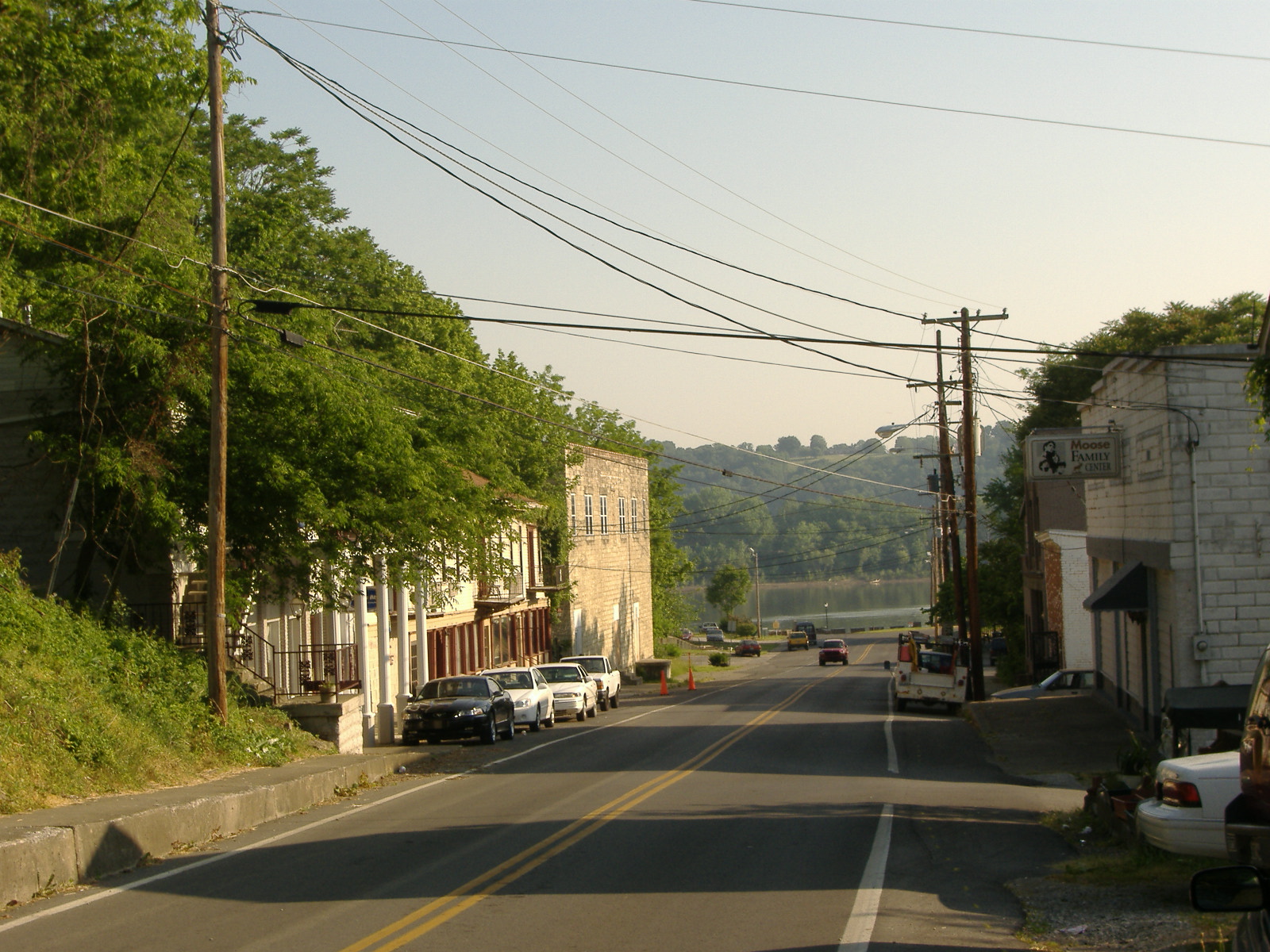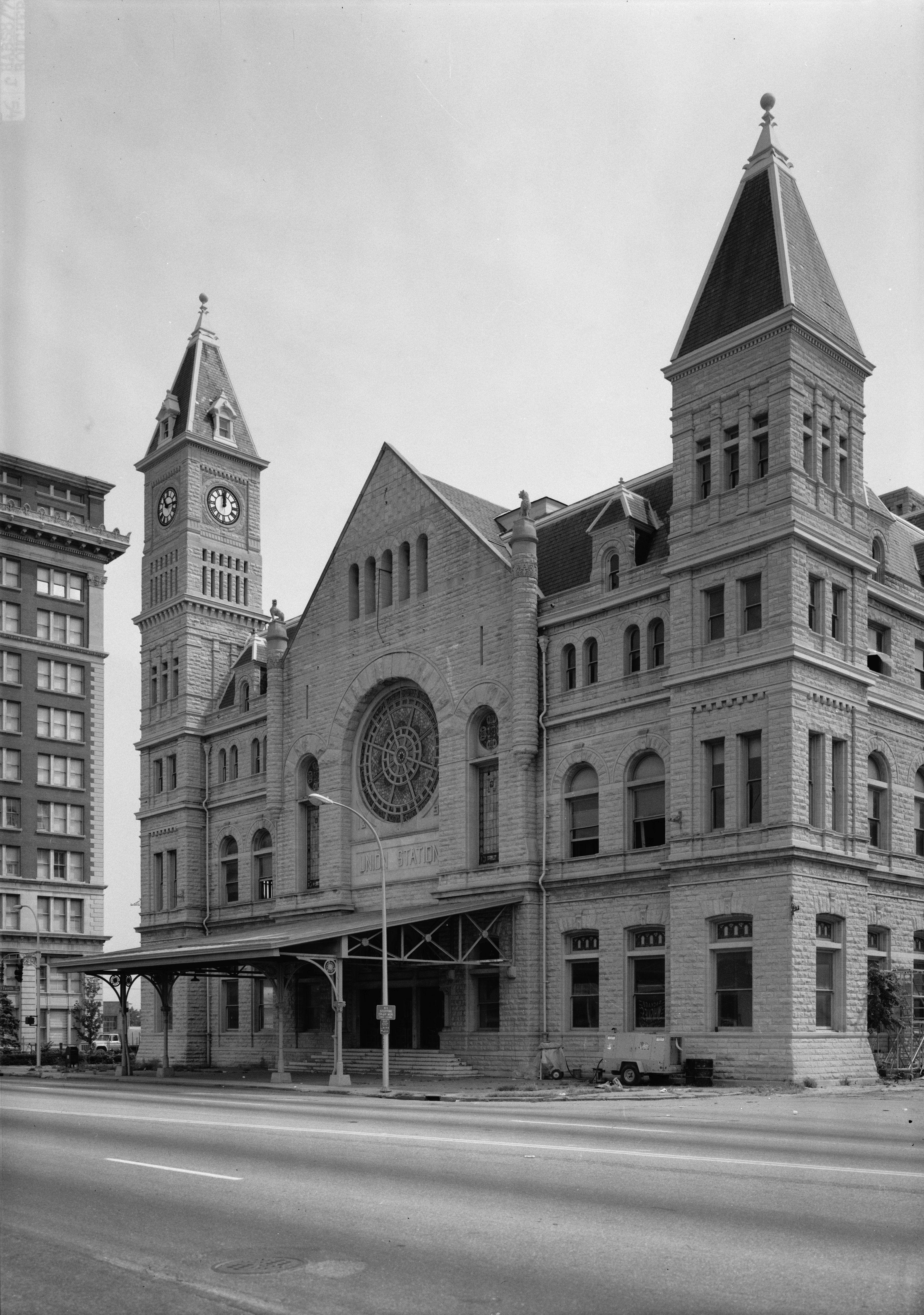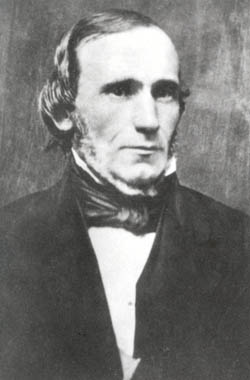|
William Henry Steward
William Henry Steward (July 26, 1847 – January 3, 1935) was a civil rights activist from Louisville, Kentucky. In February 1876, he was appointed the first black letter carrier in Kentucky. He was the leading layman of the General Association of Negro Baptists in Kentucky and played a key role in the founding of Simmons College of Kentucky by the group in 1879. He continued to play an important role in the college during his life. He was also co-founder of the ''American Baptist'', a journal associated with the group, and Steward went on to be the journal's editor. He was a leader in Louisville civic and public life, and played a role in extending educational opportunities in the city to black children. In 1897, his political associations led to his appointment as judge of registration and election for the Fifteenth Precinct of the Ninth Ward, overseeing voter registration for the election. This was the first appointment of an African American to such a position in Kentucky. He w ... [...More Info...] [...Related Items...] OR: [Wikipedia] [Google] [Baidu] |
Brandenburg, Kentucky
Brandenburg is a home rule-class city on the Ohio River in Meade County, Kentucky, in the United States. The city is southwest of Louisville. It is the seat of its county. The population was 2,643 at the 2010 census. History Brandenburg was built on a tract of land called Falling Springs, purchased in 1804 by Solomon Brandenburg. He opened a tavern around which the community grew. In 1825, the community became the seat of Meade County, but it wasn't formally incorporated by the state assembly until March 28, 1872. During the Civil War, Confederate General John Hunt Morgan crossed at Brandenburg to start his raid into Indiana in July, 1863. During the Battle of Brandenburg Crossing, two men on the Indiana side of the river were killed by cannon fire from Brandenburg. A Union gunship was deployed to block the crossing, but it ran out of ammunition and Morgan and his men were able to pass into Indiana. Brandenburg was devastated by an F5 tornado during the Super Outbreak o ... [...More Info...] [...Related Items...] OR: [Wikipedia] [Google] [Baidu] |
Louisville & Nashville Railroad
The Louisville and Nashville Railroad , commonly called the L&N, was a Class I railroad that operated freight and passenger services in the southeast United States. Chartered by the Commonwealth of Kentucky in 1850, the road grew into one of the great success stories of American business. Operating under one name continuously for 132 years, it survived civil war and economic depression and several waves of social and technological change. Under Milton H. Smith, president of the company for 30 years, the L&N grew from a road with less than of track to a system serving fourteen states. As one of the premier Southern railroads, the L&N extended its reach far beyond its namesake cities, stretching to St. Louis, Memphis, Atlanta, and New Orleans. The railroad was economically strong throughout its lifetime, operating freight and passenger trains in a manner that earned it the nickname, "The Old Reliable." Growth of the railroad continued until its purchase and the tumultuous rail ... [...More Info...] [...Related Items...] OR: [Wikipedia] [Google] [Baidu] |
William McKinley
William McKinley (January 29, 1843September 14, 1901) was the 25th president of the United States, serving from 1897 until his assassination in 1901. As a politician he led a realignment that made his Republican Party largely dominant in the industrial states and nationwide until the 1930s. He presided over victory in the Spanish–American War of 1898; gained control of Hawaii, Puerto Rico, the Philippines and Cuba; restored prosperity after a deep depression; rejected the inflationary monetary policy of free silver, keeping the nation on the gold standard; and raised protective tariffs to boost American industry and keep wages high. A Republican, McKinley was the last president to have served in the American Civil War; he was the only one to begin his service as an enlisted man, and end as a brevet major. After the war, he settled in Canton, Ohio, where he practiced law and married Ida Saxton. In 1876, McKinley was elected to Congress, where he became the Republican e ... [...More Info...] [...Related Items...] OR: [Wikipedia] [Google] [Baidu] |
Grover Cleveland
Stephen Grover Cleveland (March 18, 1837June 24, 1908) was an American lawyer and politician who served as the 22nd and 24th president of the United States from 1885 to 1889 and from 1893 to 1897. Cleveland is the only president in American history to serve two non-consecutive terms in office. He won the popular vote for three presidential elections—in 1884, 1888, and 1892—and was one of two Democrats (followed by Woodrow Wilson in 1912) to be elected president during the era of Republican presidential domination dating from 1861 to 1933. In 1881, Cleveland was elected mayor of Buffalo, and in 1882, he was elected governor of New York. He was the leader of the pro-business Bourbon Democrats who opposed high tariffs, free silver, inflation, imperialism, and subsidies to business, farmers, or veterans. His crusade for political reform and fiscal conservatism made him an icon for American conservatives of the era. Cleveland won praise for his honesty, self-reliance, ... [...More Info...] [...Related Items...] OR: [Wikipedia] [Google] [Baidu] |
Benjamin Harrison
Benjamin Harrison (August 20, 1833March 13, 1901) was an American lawyer and politician who served as the 23rd president of the United States from 1889 to 1893. He was a member of the Harrison family of Virginia–a grandson of the ninth president, William Henry Harrison, and a great-grandson of Benjamin Harrison V, a founding father. Harrison was born on a farm by the Ohio River and graduated from Miami University in Oxford, Ohio. After moving to Indianapolis, he established himself as a prominent local attorney, Presbyterian church leader, and politician in Indiana. During the American Civil War, he served in the Union Army as a colonel, and was confirmed by the U.S. Senate as a brevet brigadier general of volunteers in 1865. Harrison unsuccessfully ran for governor of Indiana in 1876. The Indiana General Assembly elected Harrison to a six-year term in the Senate, where he served from 1881 to 1887. A Republican, Harrison was elected to the presidency in 1888, def ... [...More Info...] [...Related Items...] OR: [Wikipedia] [Google] [Baidu] |
1892 Republican National Convention
The 1892 Republican National Convention was held at the Industrial Exposition Building, Minneapolis, Minnesota, from June 7 to June 10, 1892. The party nominated President Benjamin Harrison for re-election on the first ballot and Whitelaw Reid of New York for vice president. James S. Clarkson of Iowa was the outgoing chairman of the Republican National Committee. J. Sloat Fassett of New York was Temporary Chairman, and Governor William McKinley Jr. of Ohio was the Permanent Chair of the convention. Harrison's Secretary of State James G. Blaine, who had resigned from the cabinet on June 4, 1892, the eve of the convention, had his name submitted for consideration by the delegates, but drew little support. Future president William McKinley barely edged out Blaine for second place among the delegates. Although successful in his bid for re-nomination, President Harrison's performance was underwhelming for an incumbent, due in part to the crushing defeat that the party had suffered ... [...More Info...] [...Related Items...] OR: [Wikipedia] [Google] [Baidu] |
George Davidson Todd
George Davidson Todd (April 19, 1856 – November 23, 1929) was Mayor of Louisville, Kentucky from 1896 to 1897. Early life George D. Todd was born on April 19, 1856, in Frankfort, Kentucky. His descendants were early settlers of Kentucky, and his father, Harry Innes Todd, was a two-term sheriff of Franklin County, Kentucky as well as state prison trustee and warden. Career George Davidson Todd came to Louisville at age 18 to work for the W.B. Belknap hardware company, later known as Belknap Hardware and Manufacturing Company. He started his own company, the ''Todd-Donigan Iron Company'', in 1880. He served as treasurer of the state Republican Party. Todd became the first republican elected Mayor of Louisville (Robert Emmet King had served as mayor ''pro tem'' for two weeks) in 1896. Todd finished out the term of Democrat Henry S. Tyler who had died in office. His term as mayor was complicated by a split within his own party over political appointments, and he lost his bid f ... [...More Info...] [...Related Items...] OR: [Wikipedia] [Google] [Baidu] |
Robert Brown Elliott
Robert Brown Elliott (August 11, 1842August 9, 1884) was a British-born American politician of British Afro-Caribbean ethnic background. He was a member of the United States House of Representatives from South Carolina, serving from 1871 to 1874. Early life and education He was born in 1842 in Liverpool, England, to parents likely from the British West Indies. He attended High Holborn Academy in London, England and then studied law, graduating from Eton College in 1859. From there he joined the British Royal Navy. Elliott arrived in Boston in 1867, and by late that year he was living in Charleston, South Carolina.Black Americans in Congress - Robert Brown Elliott: Representative, 1871–1874, Republican from South Carolina http://history.house.gov/People/Listing/E/ELLIOTT,-Robert-Brown-(E000128)/ He was admitted to the South Carolina bar in 1868 and began practicing law in Columbia, the state capital. Career Elliott arrived in South Carolina in 1867 at the age of 25, where h ... [...More Info...] [...Related Items...] OR: [Wikipedia] [Google] [Baidu] |
Fifteenth Amendment To The United States Constitution
The Fifteenth Amendment (Amendment XV) to the United States Constitution prohibits the federal government and each state from denying or abridging a citizen's right to vote "on account of race, color, or previous condition of servitude." It was ratified on February 3, 1870, as the third and last of the Reconstruction Amendments. In the final years of the American Civil War and the Reconstruction Era that followed, Congress repeatedly debated the rights of the millions of black freedmen. By 1869, amendments had been passed to abolish slavery and provide citizenship and equal protection under the laws, but the election of Ulysses S. Grant to the presidency in 1868 convinced a majority of Republicans that protecting the franchise of black male voters was important for the party's future. On February 26, 1869, after rejecting more sweeping versions of a suffrage amendment, Republicans proposed a compromise amendment which would ban franchise restrictions on the basis of race, colo ... [...More Info...] [...Related Items...] OR: [Wikipedia] [Google] [Baidu] |
Fourteenth Amendment To The United States Constitution
The Fourteenth Amendment (Amendment XIV) to the United States Constitution was adopted on July 9, 1868, as one of the Reconstruction Amendments. Often considered as one of the most consequential amendments, it addresses citizenship rights and equal protection under the law and was proposed in response to issues related to former slaves following the American Civil War. The amendment was bitterly contested, particularly by the states of the defeated Confederacy, which were forced to ratify it in order to regain representation in Congress. The amendment, particularly its first section, is one of the most litigated parts of the Constitution, forming the basis for landmark Supreme Court decisions such as ''Brown v. Board of Education'' (1954) regarding racial segregation, ''Roe v. Wade'' (1973) regarding abortion ( overturned in 2022), ''Bush v. Gore'' (2000) regarding the 2000 presidential election, and ''Obergefell v. Hodges'' (2015) regarding same-sex marriage. The amendment ... [...More Info...] [...Related Items...] OR: [Wikipedia] [Google] [Baidu] |
Thirteenth Amendment To The United States Constitution
The Thirteenth Amendment (Amendment XIII) to the United States Constitution abolished slavery and involuntary servitude, except as punishment for a crime. The amendment was passed by the Senate on April 8, 1864, by the House of Representatives on January 31, 1865, and ratified by the required 27 of the then 36 states on December 6, 1865, and proclaimed on December 18. It was the first of the three Reconstruction Amendments adopted following the American Civil War. President Abraham Lincoln's Emancipation Proclamation, effective on January 1, 1863, declared that the enslaved in Confederate-controlled areas were free. When they escaped to Union lines or federal forces (including now-former slaves) advanced south, emancipation occurred without any compensation to the former owners. Texas was the last Confederate territory reached by the Union army. On June 19, 1865—Juneteenth—U.S. Army general Gordon Granger arrived in Galveston, Texas, to proclaim the war had ended and so ... [...More Info...] [...Related Items...] OR: [Wikipedia] [Google] [Baidu] |
Democratic Party (United States)
The Democratic Party is one of the two major contemporary political parties in the United States. Founded in 1828, it was predominantly built by Martin Van Buren, who assembled a wide cadre of politicians in every state behind war hero Andrew Jackson, making it the world's oldest active political party.M. Philip Lucas, "Martin Van Buren as Party Leader and at Andrew Jackson's Right Hand." in ''A Companion to the Antebellum Presidents 1837–1861'' (2014): 107–129."The Democratic Party, founded in 1828, is the world's oldest political party" states Its main political rival has been the Republican Party since the 1850s. The party is a big tent, and though it is often described as liberal, it is less ideologically uniform than the Republican Party (with major individuals within it frequently holding widely different political views) due to the broader list of unique voting blocs that compose it. The historical predecessor of the Democratic Party is considered to be th ... [...More Info...] [...Related Items...] OR: [Wikipedia] [Google] [Baidu] |






.png)


